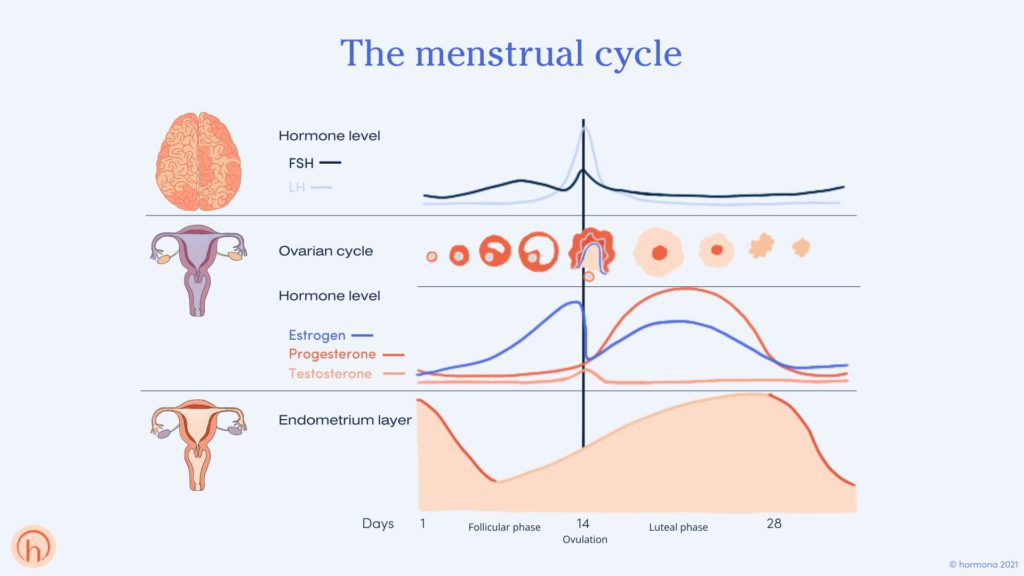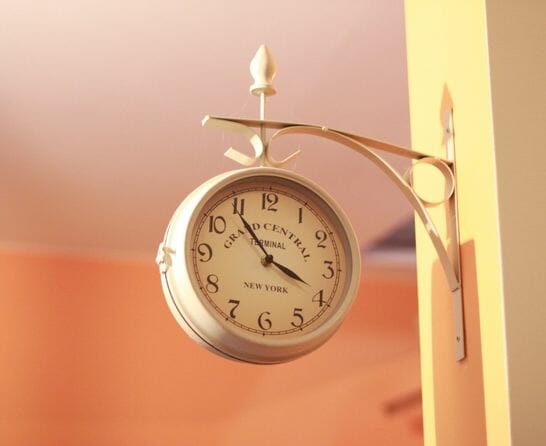Published 16 September 2024
-
Written by Katherine Maslowski, MBChB, PGDipOMG and MSc

Reviewed by Anna Chacon
Fact checking standards
Key takeaways
Late periods can be really stressful! For a lot of reasons. If you are trying not to get pregnant then a late period can make you panic! If you are trying to get pregnant then a late period might make you really hopeful, only to be devastated when your period eventually arrives. Today we are going to talk about what causes our periods to be late.
What is a late period?
If your periods are usually regular (you can predict when they are going to start) then a late period is one that is at least a few days behind schedule. If you have irregular periods then it is much harder to predict when your period should start and whether it is late.
What happens “normally”?
Remember that “normal” is different for everyone. But to have periods that are regular and on time, we need to ovulate (the ovary releases an egg in the middle of the cycle). Ovulation requires a coordinated change in hormone levels over the course of the menstrual cycle. The hormone changes are shown in the diagram below.

If there is anything that disrupts these hormonal changes then it is likely you will not ovulate. After ovulation, the cells left behind are called the corpus luteum. The corpus luteum is what produces the progesterone in the second half of the cycle (luteal phase). If we don’t get pregnant, then the corpus luteum “dies” and is reabsorbed by the body. It then stops producing progesterone. This fall in progesterone is what triggers the period to start.
Without this coordination, your womb (uterus) doesn’t get the message that it is time to bleed and your period might be late.
Textbooks always say that a “normal” menstrual cycle is 28 days long. This means that you would get a period every 28 days. Everyone is different though and a “normal” cycle is actually anywhere between 21-35 days long.
Whatever is normal for you is your normal. Everyone is different. When we are talking about late periods we mean anything that is later than normal for you.
What causes a period to be late?
There are a lot of reasons that your period might be late. Our hormones control our periods. So any disruption in our hormones can disrupt our periods.
If the coordinated increase and decrease in progesterone don’t happen in the luteal phase then your period is unlikely to start on time.
The most common cause of a late period is pregnancy. If your period is late and there is a chance you could be pregnant then it is always worth doing a pregnancy test to check.
IMPORTANT NOTE: If you think you might be pregnant and experience pain in your lower abdomen then please see a doctor urgently. There is a chance that this could be an ectopic pregnancy which can be very dangerous if not treated quickly.
There are also a lot of other reasons that periods can be late:
- Stress
- Over-exercising or not eating enough
- Approaching menopause
- Polycystic ovarian syndrome (PCOS)
- Sudden, significant weight loss or gain
Stress as a cause of late periods
Stress can wreak havoc on our hormones. It is hard to predict what kind of effect stress will have on our cycles. It might make our periods come early, late or not at all. Our periods might also stay completely normal even when we are really stressed. Everyone is different.
These strategies might help you to combat stress. But if you are really struggling it is worth talking to a trusted health professional for help.
Menopause as a cause of late periods
As you approach menopause, your ovaries have fewer and fewer eggs left. It is the eggs (or more specifically, the follicles which are the eggs surrounded by bundles of cells) that produce estrogen. As the estrogen levels drop as we get closer to menopause the coordination of the menstrual cycle becomes disrupted.
Usually, one of the symptoms of perimenopause (the time around menopause) is that periods start to become irregular. You might notice that your periods are late or even early. Eventually, they will stop completely and this is called the menopause.
Polycystic ovarian syndrome and late periods
Polycystic ovarian syndrome (PCOS) can cause your periods to be late. Sometimes people with PCOS have irregular periods so they find it hard to predict when their period is going to come. Sometimes with PCOS your periods might become very infrequent but they are still reasonably regular. The effect that PCOS has on periods is different for everyone.
PCOS can interfere with ovulation which means it can interrupt the coordination of progesterone in the luteal phase of your cycle. If this happens then your period might be late.
Weight and exercise as a cause of late periods
Weight and exercise can have a big effect on our hormones. Over-exercising can shut down the hormonal system that coordinates our periods. As can being very underweight. Being very overweight can also disrupt our hormones. This is because fat tissue produces estrogen so the more fat we have, the more estrogen we produce. Excess estrogen can disrupt the coordination of our cycle and cause our periods to be late or become irregular.
If you are struggling with restrictive eating, overeating, or over-exercising it is important to ask a healthcare professional for help.
Hormonal imbalances as a cause of late periods
Other medical conditions that disrupt other hormone systems can also cause your periods to be late. An overactive or under-active thyroid, diabetes or heart disease are all examples of such medical conditions. If you are concerned about any medical conditions or wonder if you might have a hormonal imbalance then it is a good idea to speak to a medical professional.
Other causes of late periods
Anything that disrupts your life in any way can cause your period to be late. This can be stressful life changes, a new job, bereavement, serious illness, surgery or even vaccination. Anything that interferes with your body’s usual function can change your hormones and cause your period to be late.
What if my period never arrives this month?
If your period doesn’t arrive in the month it is due then it is called a missed period. Usually, this is counted as more than 6 weeks since your last period. This article has some more information about missed periods if you are interested.
What should I do if my periods are often late?
If your periods are often late it is a good idea to track your cycle. The Hormona app can help you with this. This will give you more information to take to a doctor to discuss what might be causing your late periods and what can be done about it.
Talk to your doctor if you are often having late periods as there may be an underlying condition that is causing this. If your periods have stopped completely before you are 45 (premature menopause) then it is important to see a doctor.
It is also a good idea to speak to your mum and/or sisters if you have any. Menstrual cycle issues sometimes run in families so they might know what is going on or have some good advice!
Disclaimer: This website does not provide medical advice
The information, including but not limited to, text, graphics, images and other material contained on this website are for informational purposes only. No material on this site is intended to be a substitute for professional medical advice, diagnosis or treatment. Always seek the advice of your physician or other qualified health care provider with any questions you may have regarding a medical condition or treatment and before undertaking a new health care regimen, and never disregard professional medical advice or delay in seeking it because of something you have read on this website.
Disclaimer: This website does not provide medical advice. The information, including but not limited to, text, graphics, images, and other material contained on this website is for informational purposes only. No material on this site is intended to be a substitute for professional medical advice, diagnosis, or treatment. Always seek the advice of your physician or other qualified healthcare provider with any questions you may have regarding a medical condition or treatment and before undertaking a new healthcare regimen, and never disregard professional medical advice or delay in seeking it because of something you have read on this website.
Written by
Katherine Maslowski, MBChB, PGDipOMG and MSc
Reviewed by

Anna Chacon
Reviewed by

Dr Singh is the Medical Director of the Indiana Sleep Center. His research and clinical practice focuses on the myriad of sleep.





